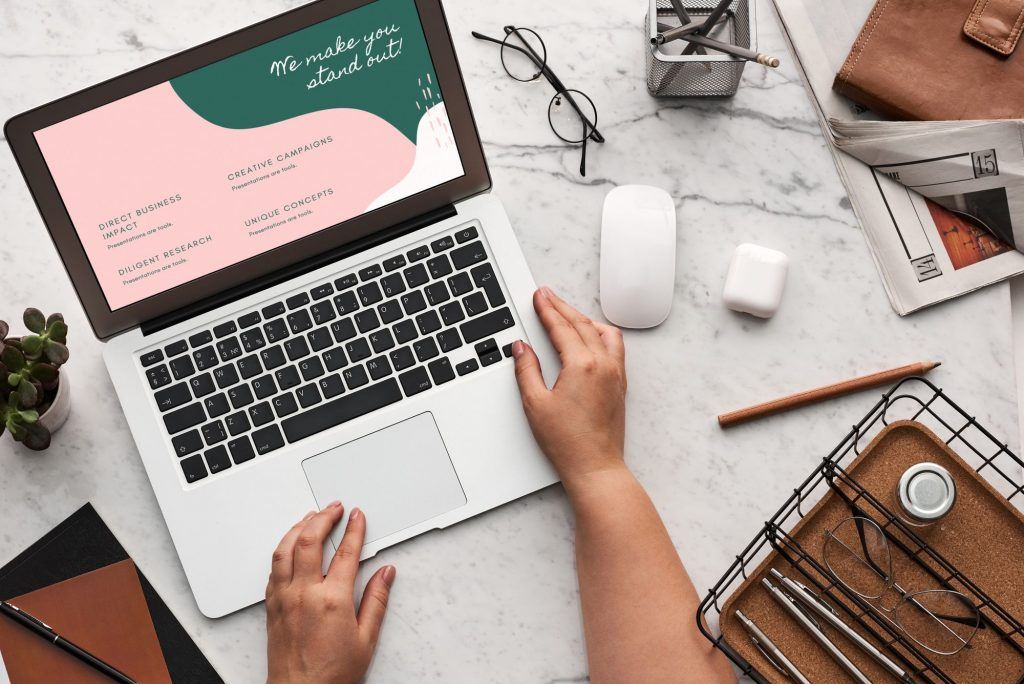
Blog Post Written By: Jaala Naylor
Coming into a summer of uncertainty, I wasn’t sure what to expect from a remote internship at a software company. As a business student with a few years’ of college experience, I anticipated feeling a bit out of place among software engineers. I was eager to see what challenges I would face, but was also apprehensive of the difficulties that might come from working from home.
Now looking back, I shake my head at my pre-internship jitters or fears. I had a great time at SEP this summer – I learned a lot of new things and met some fantastic people. Here are a few things that have stuck out to me, along with a few tips for any future bizterns.
Interesting Challenges
The most difficult challenge this summer was adjusting to intangible work and open-ended projects. For the most part, nearly all of my job experiences had tangible work with clear-cut instructions.
For example, while I was a barista at Starbucks, I could easily print out a summary of that day’s sales. I could see a customer’s smile after they received their specialized latte. At the end of the day, I had the physical proof that I had worked hard that day: my apron would be sticky with syrup and infused with the glorious smell of coffee beans, I would be energized by the caffeine I had consumed but tired from a day of hard work. At the end of the day, it was easy to see the results of my labor.

Working remote at SEP, things were different. Unlike my previous jobs, it was harder to point to something and say, “This is what I did today.”
While intangible work challenged me, I loved that my tasks at SEP varied day-to-day. Some days I might work on three or four projects, other days I might work on one larger project, or it might be a day packed full of Zoom meetings. I fell in love with the variety of work along with the plethora projects that I could pick and choose from.
I learned to shift my mindset from expecting a physical result to visualizing the progress of a digital one. I became content with knowing that some days would “feel” more productive than others. I accepted the necessity of investing time to learn certain skills before starting on certain projects: for example, I binge-watched Intro Power BI and DAX videos in order to properly start my Power BI Dashboards.
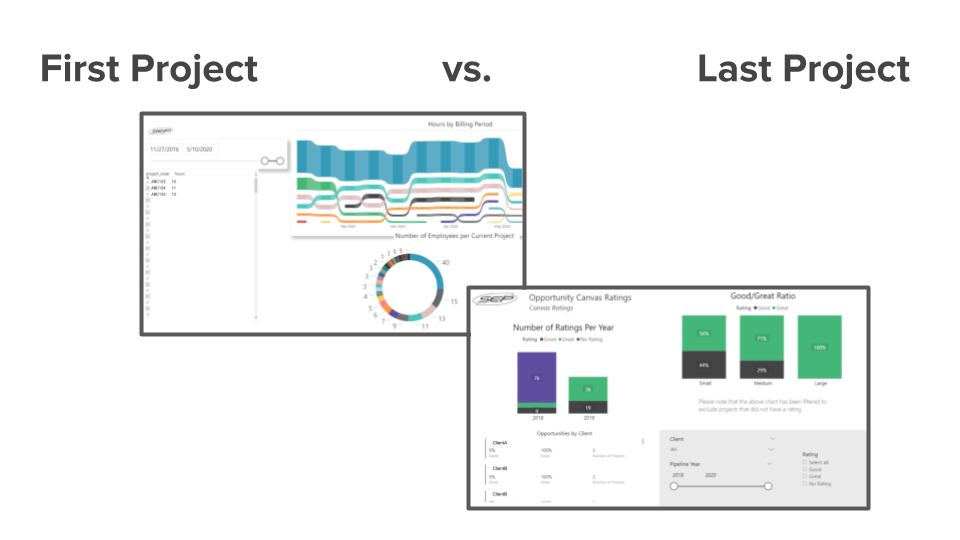
The main challenge I faced was learning how to problem-solve for abstract projects that lacked step-by-step instructions. I firmly believe that this is the crux of transitioning from the classroom to the workplace. In school, you might be given a set of instructions, a list of resources you can/can’t use, a rubric – all things that determine how you will problem solve, and what your end result might look like.
At SEP, things looked a bit different. Our Trello Board kept us organized, but the project cards didn’t lay out every little detail for how to complete each project. Without the knowledge of what the end result “should” be, my brain was forced to embrace a new level of problem solving – a process that included ideating multiple solutions while coming up with a myriad of ways to get to those solutions.
For example, one of the projects I worked on was a Customer Feedback Roadmap. My initial thoughts were, “What even is a Customer Feedback Roadmap? Never mind the content – how is it supposed to be laid out? How should it be built? What information are we supposed to include?”
This project, like many others, did not have any right or wrong answers. The cool thing about our brains is that without a well-defined solution, your brain is forced to adapt, and the solutions can end up being a lot more creative than they might have been if the project had an in-depth description. This type of brain ideation causes a lot of positive side effects: by jumping into an unknown problem, you end up learning a lot more than you might have.
In our initial drafts of the Customer Feedback Roadmap, Julia (my fellow business intern) and I came up with a lot of ways to go about it – Excel, Word Doc, Google Doc, Infographic. As we uncovered the different layers of the problem we were trying to solve, we gradually were able to better define our problem and come up with our solution (if you’re curious, it ended up being an infographic with links to different resources we made – allowing managers and leads to easily keep track of their customer contacts and feedback throughout a project’s duration)
Both the intangible work and abstract problems pushed me out of my comfort zone – but that’s a good thing, and I grew a lot from it.
Your Work is Valuable
I like feeling useful and knowing that what I’m doing is helpful to someone. It’s hard to motivate myself to do my best work if I think that the work is arbitrary and won’t be used.
At SEP, this wasn’t an issue in the slightest. From the very beginning, Julia and I started on projects that were important, with the knowledge that our work was valuable. Even if we had been in the physical office this summer, I know that we wouldn’t have spent the summer making copies of paperwork or picking up coffee.
For example, in the case with the Customer Feedback Roadmap, Julia and I knew that if we did a decent job at creating the resource and sharing it out, not only could it be used by current managers, but it could have a lasting impact for years to come.
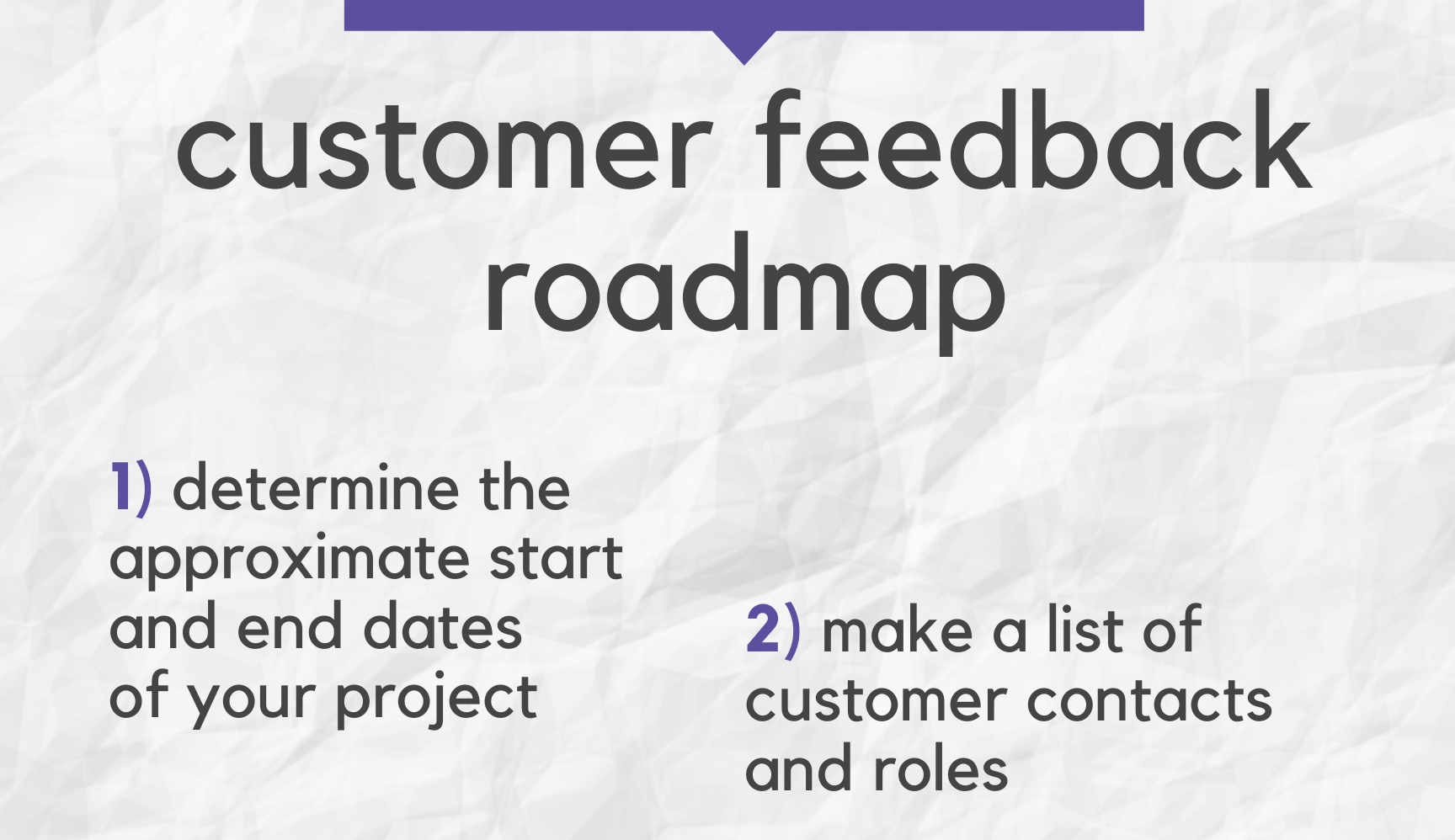
Another example of this is from one of the Software Engineering Interns. He explained that he was hired at the same time as a new full-time Software Engineer and was pleasantly surprised that they both were treated with the same amount of respect and had similar responsibilities – even weeks after they started. You can be the “lowliest intern” but you are treated with the same respect as someone with decades of experience. At SEP, job titles matter in terms of responsibilities – but not in terms of respect.
It’s extremely motivating to know that your work matters, and ultimately, your ideas and input matter, too.
Redefining what “Normal” is
When I met SEPeers through various Zoom meetings, one of the most common reactions was, “Does working from home feel weird to you? I can’t imagine what it’s like not having a normal internship in the office.”
In all honestly though, it really wasn’t. As I had never worked at the SEP office, my version of a “normal” workday was setting up my laptop next to my windowsill and having a bunch of Zoom meetings throughout the day.
I adjusted to my new routine, even though it might not have been the typical internship experience. It also made me incredibly grateful for the few times my team did meet in person. It’s easy to take for granted what you have until it’s gone.
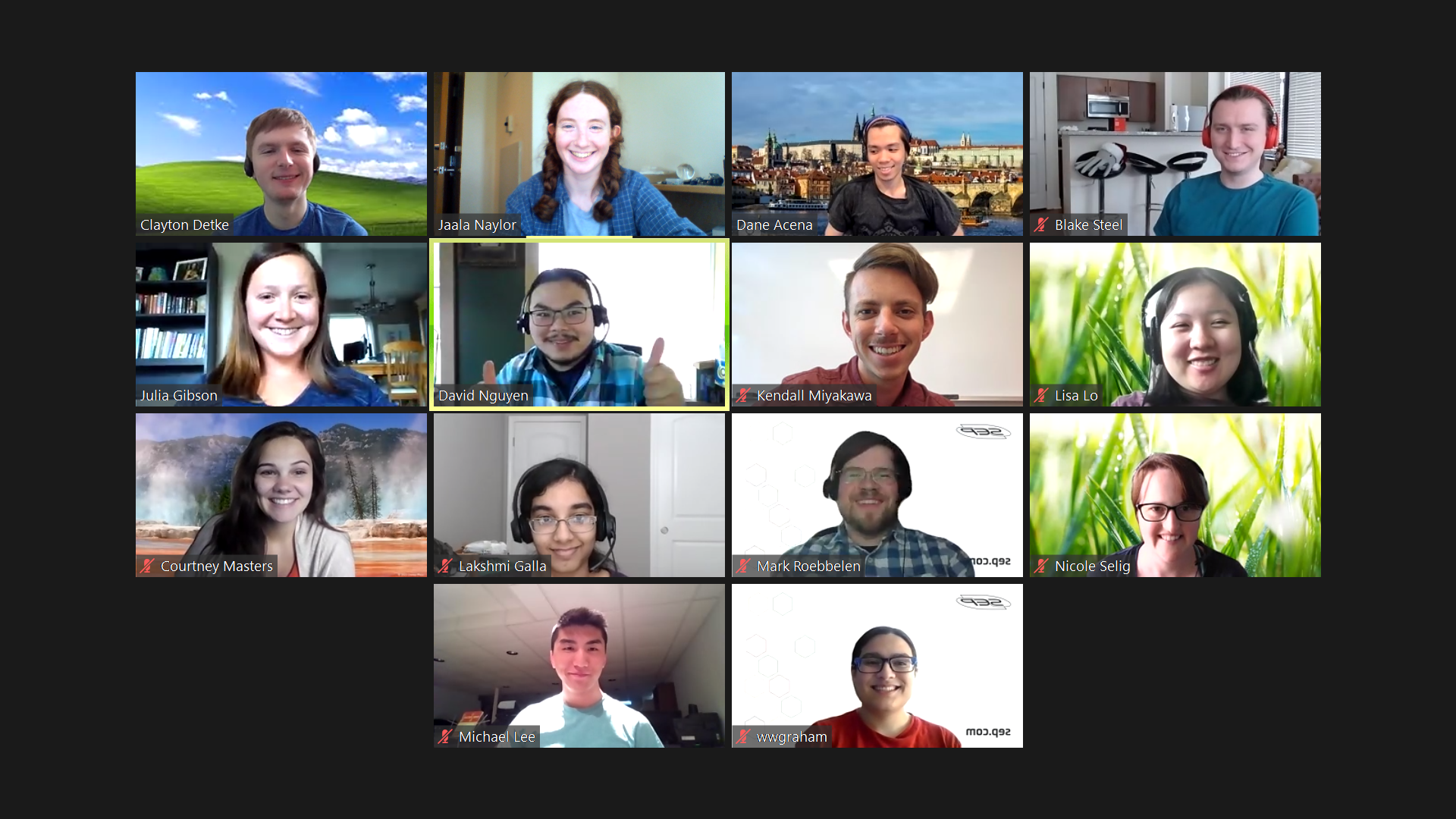
Advice to Incoming Bizterns
It’s easy to feel overwhelmed. For a lot of you, this might be your first “real” internship. It’s okay not to understand what’s going on. For me, I was getting used to a lot of new software platforms I didn’t have much experience in: Trello, Slack, Outlook, Power BI, Hubspot, and others.
Take Notes
A phrase you’ll hear a lot during your first week is “drinking from a firehose.” There’s a lot of information to take in, and you probably will only remember a fraction of it. That’s why it’s important to take notes. You’ll probably get a cute leather notebook – fill that sucker up!

Be Organized
Another important factor for your summer is to be organized. I had a lot of projects going on at once, and I found that it was difficult to keep track of everything. Without the Trello Board, I would have been hopelessly scattered.
My SEP Morning Routine consisted of:
- Checking my email (Are there any pending meeting invitations I need to accept? Meetings I should prepare for?)
- Checking new Slack messages (Are there any “professional nagging” messages I should send? Slack messages to respond to?)
- Looking over the Trello Board (Are there any updates from what I worked on yesterday? Should I move any cards right now?)
- Looking over my calendar (What does my day look like? Review what I worked on yesterday, establish what my goals are for today.)
I found it really helpful each morning to write down what I worked on the day before, along with a list of goals for the day – this gave me an idea of my progress throughout various projects, but also provided me a sense of accomplishment at the end of the day.
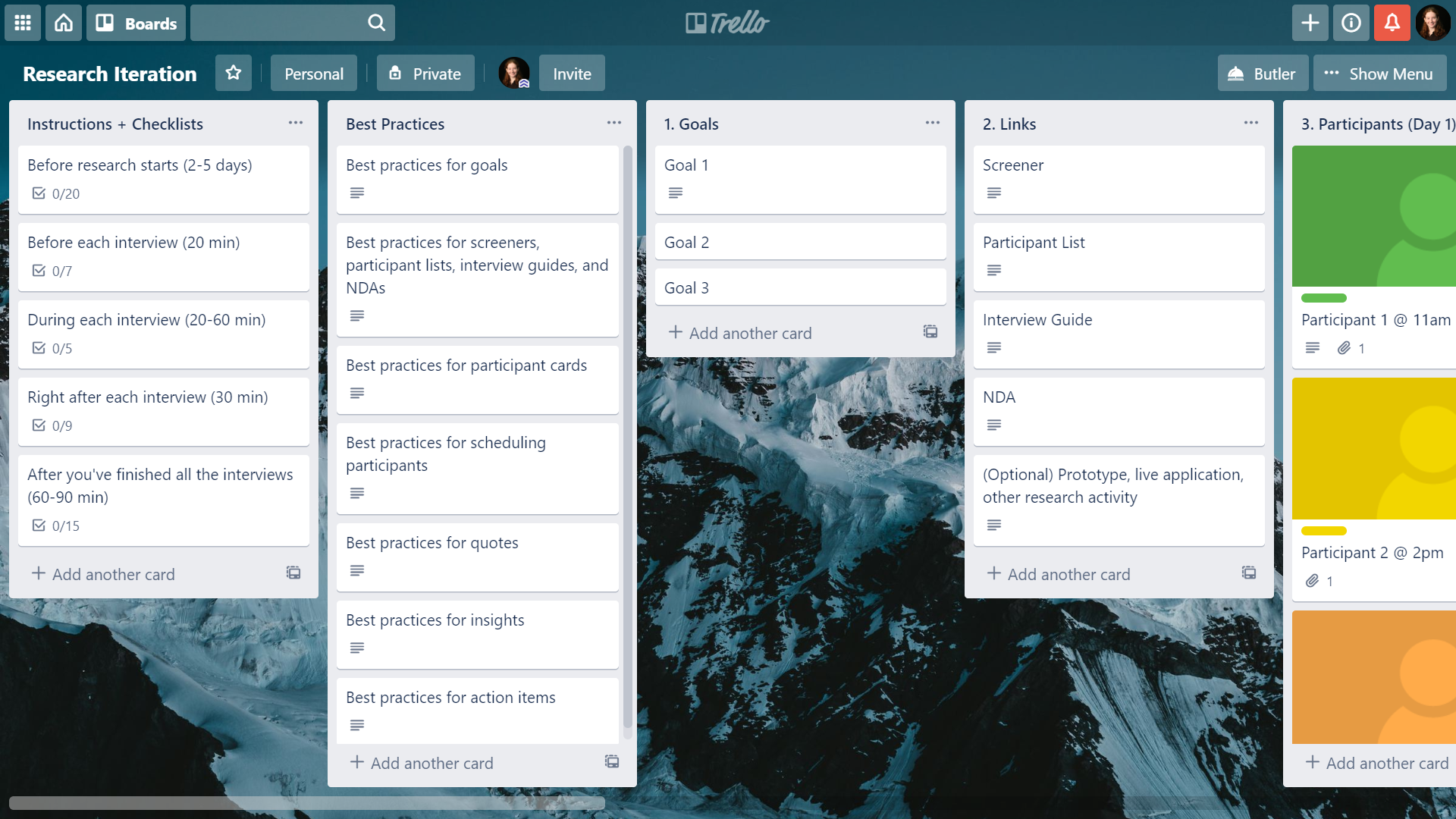
Talk to People
Julia and I tag-teamed shadowing opportunities throughout our time at SEP. Your onboarding guide should give you a lot of different ideas of people you can talk to. However, remember that that list isn’t exhaustive. I ended up talking to a few different SEPeers about their various interests (LEAN with Chris Shinkle, AI with Robert Herbig & Jordan Thayer, 3D Printing with Andrew McCurry, InfoSec with Sasha Kotlyar, Chris Pierce & Ryan Hermann). There are a bunch of interesting people to chat with at SEP! Hopefully, you’ll be able to run into them at the physical office, but know that you’re also able to use Slack to talk with people you haven’t met in person yet.

Get Out of Your Comfort Zone
I tried to maintain a growth mindset during my summer at SEP. That basically boiled down to me doing or saying some dumb or embarrassing stuff. You will probably get a lot more out of your summer if you push yourself to do things that are scary or uncomfortable. For me, I’m not the best public speaker. That saying, I learned a lot through preparing and hosting a Lightning Talk. Don’t get me wrong – it was terrifying! But I was better for it. It’ll probably look different for you, but don’t let fear of failure or embarrassment hold you back from having a fantastic summer.
Whether or not you end up working here at SEP, being able to face your fears will give you a leg up in any challenge or job experience you come up against. I encourage you to break free of your comfort zone, redefine what “normal” means, and embrace the unknown – who knows? You might just learn something new.
